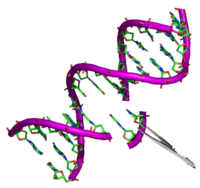
Optical coherence tomography shows neuroretinal thinning in myelopathy of adrenoleukodystrophy
Sign Up to like & getrecommendations! Published in 2019 at "Journal of Neurology"
DOI: 10.1007/s00415-019-09627-z
Abstract: Background Progressive myelopathy is the main cause of disability in adrenoleukodystrophy (ALD). Development of therapies is hampered by a lack of quantitative outcome measures. In this study, we investigated whether myelopathy in ALD is associated… read more here.
Keywords: coherence tomography; optical coherence; ald; adrenoleukodystrophy ... See more keywords

Five men with arresting and relapsing cerebral adrenoleukodystrophy
Sign Up to like & getrecommendations! Published in 2020 at "Journal of Neurology"
DOI: 10.1007/s00415-020-10225-7
Abstract: X-linked adrenoleukodystrophy (ALD) is the most common genetic peroxisomal disorder with an estimated prevalence of 1:15,000. Approximately two-thirds of males with ALD manifest the inflammatory demyelinating cerebral phenotype (cALD) at some disease stage, in which… read more here.
Keywords: arresting relapsing; five men; men arresting; adrenoleukodystrophy ... See more keywords

Treatment of cerebral adrenoleukodystrophy: allogeneic transplantation and lentiviral gene therapy
Sign Up to like & getrecommendations! Published in 2022 at "Expert Opinion on Biological Therapy"
DOI: 10.1080/14712598.2022.2124857
Abstract: ABSTRACT Introduction Adrenoleukodystrophy (ALD) is an X-linked peroxisomal disorder with an incidence of 1 in 14–17,000 male births, caused by pathogenic variants within the ABCD1 gene. By adulthood, approximately 40% of the patients develop cerebral… read more here.
Keywords: therapy; cerebral ald; gene therapy; transplantation ... See more keywords

Modulation of mitochondrial and inflammatory homeostasis through RIP140 is neuroprotective in an adrenoleukodystrophy mouse model.
Sign Up to like & getrecommendations! Published in 2021 at "Neuropathology and applied neurobiology"
DOI: 10.1111/nan.12747
Abstract: AIMS Mitochondrial dysfunction and inflammation are at the core of axonal degeneration in several multifactorial neurodegenerative diseases, including multiple sclerosis, Alzheimer's and Parkinson's disease. The transcriptional coregulator RIP140/NRIP1 (receptor-interacting protein 140) modulates these functions in… read more here.
Keywords: modulation mitochondrial; adrenoleukodystrophy; model; rip140 ... See more keywords

Adrenoleukodystrophy presenting as glue sniffing
Sign Up to like & getrecommendations! Published in 2020 at "BMJ Case Reports"
DOI: 10.1136/bcr-2019-233036
Abstract: Adrenoleukodystrophy classically presents in childhood with bronze skin, spastic tetraparesis, dysphagia, behavioural abnormalities and adrenal insufficiency. However, atypical presentations are known. Here we report an adolescent with adrenoleukodystrophy who first sought medical attention for glue… read more here.
Keywords: adrenoleukodystrophy; presenting glue; glue sniffing; adrenoleukodystrophy presenting ... See more keywords

Successful donor engraftment and repair of the blood-brain barrier in cerebral adrenoleukodystrophy.
Sign Up to like & getrecommendations! Published in 2019 at "Blood"
DOI: 10.1182/blood-2018-11-887240
Abstract: Adrenoleukodystrophy (ALD) is caused by mutations within the X-linked ABCD1 gene, resulting in the inability to transport acylated very long chain fatty acids (VLCFAs) into the peroxisome for degradation. VLCFAs subsequently accumulate in tissues, including… read more here.
Keywords: blood brain; successful donor; adrenoleukodystrophy; blood ... See more keywords

Adult-Onset Adrenoleukodystrophy Presenting With Atypical Location of White Matter Lesions
Sign Up to like & getrecommendations! Published in 2022 at "Neurology"
DOI: 10.1212/wnl.0000000000201437
Abstract: A 49 -year-old man presented with progressive limb stiffness, slowness, cognitive impairment, and urinary disturbance over 2 years. An examination revealed skin hyperpigmentation, apathy, attention deficit, spastic dysarthria, symmetric upper limb rigidity, lower limb spasticity,… read more here.
Keywords: adrenoleukodystrophy presenting; adult onset; adrenoleukodystrophy; onset adrenoleukodystrophy ... See more keywords

Adrenoleukodystrophy Newborn Screening in the Netherlands (SCAN Study): The X-Factor
Sign Up to like & getrecommendations! Published in 2020 at "Frontiers in Cell and Developmental Biology"
DOI: 10.3389/fcell.2020.00499
Abstract: X-linked adrenoleukodystrophy (ALD) is a devastating metabolic disorder affecting the adrenal glands, brain and spinal cord. Males with ALD are at high risk for developing adrenal insufficiency or progressive cerebral white matter lesions (cerebral ALD)… read more here.
Keywords: adrenoleukodystrophy; screening algorithm; newborn screening; scan study ... See more keywords

Gait Difficulties and Postural Instability in Adrenoleukodystrophy
Sign Up to like & getrecommendations! Published in 2021 at "Frontiers in Neurology"
DOI: 10.3389/fneur.2021.684102
Abstract: Background: Gait and balance difficulties are among the most common clinical manifestations in adults with X-linked adrenoleukodystrophy, but little is known about the contributions of sensory loss, motor dysfunction, and postural control to gait dysfunction… read more here.
Keywords: gait difficulties; postural instability; adrenoleukodystrophy; difficulties postural ... See more keywords

The Role of Oxidative Stress and Inflammation in X-Link Adrenoleukodystrophy
Sign Up to like & getrecommendations! Published in 2022 at "Frontiers in Nutrition"
DOI: 10.3389/fnut.2022.864358
Abstract: X-linked adrenoleukodystrophy (X-ALD) is an inherited disease caused by a mutation in the ABCD1 gene encoding a peroxisomal transmembrane protein. It is characterized by the accumulation of very-long-chain fatty acids (VLCFAs) in body fluids and… read more here.
Keywords: adrenoleukodystrophy; oxidative stress; stress inflammation; role oxidative ... See more keywords

Novel ABCD1 Gene Mutation in a Korean Patient with X-Linked Adrenoleukodystrophy Presenting with Addison's Disease
Sign Up to like & getrecommendations! Published in 2020 at "Endocrinology and Metabolism"
DOI: 10.3803/enm.2020.35.1.188
Abstract: X-linked adrenoleukodystrophy (X-ALD) occurs due to mutations in the ABCD1 gene that encodes the peroxisomal membrane protein peroxisomal transporter ATP-binding cassette sub-family D member 1 (ABCD1). Degradation of very long-chain fatty acids in peroxisomes is… read more here.
Keywords: addison disease; abcd1 gene; adrenoleukodystrophy; linked adrenoleukodystrophy ... See more keywords